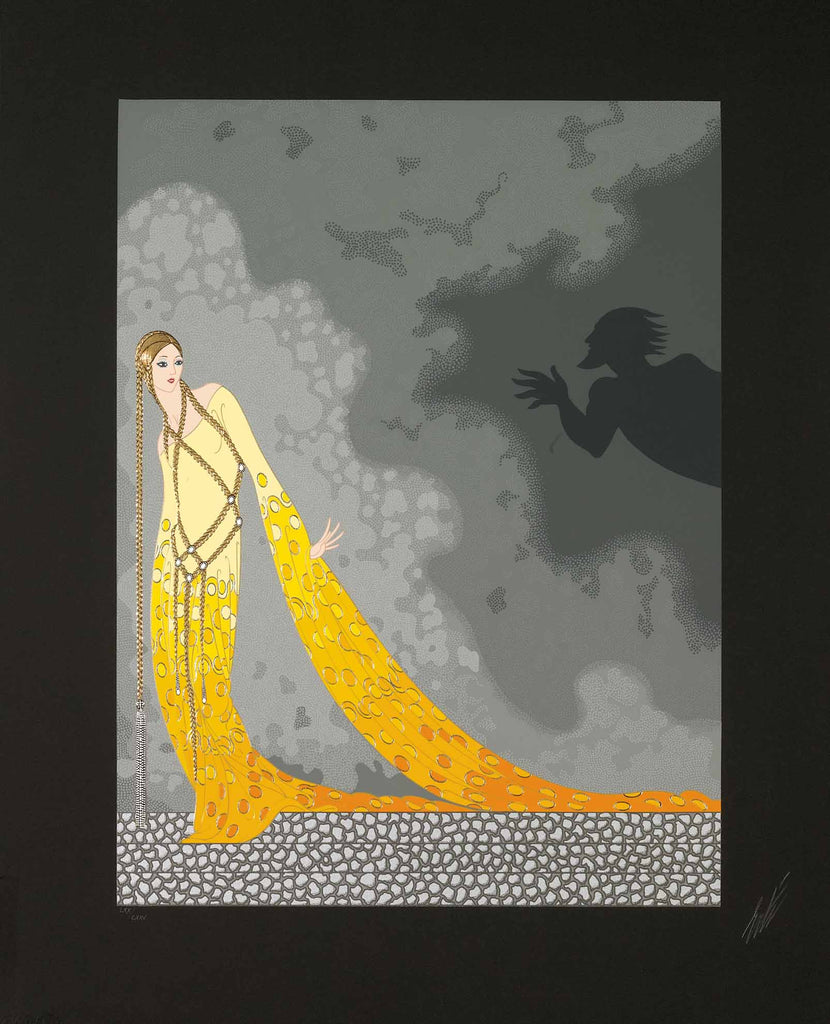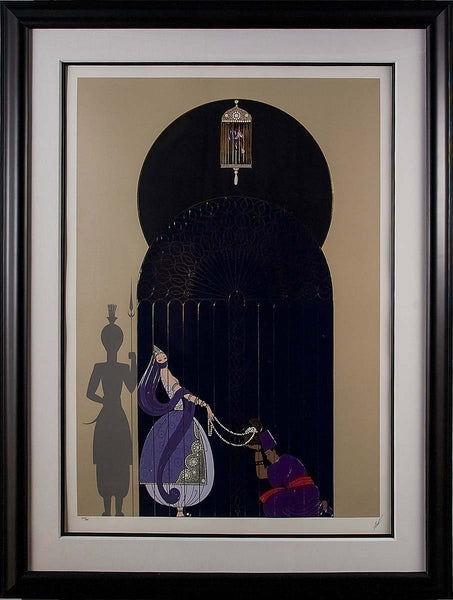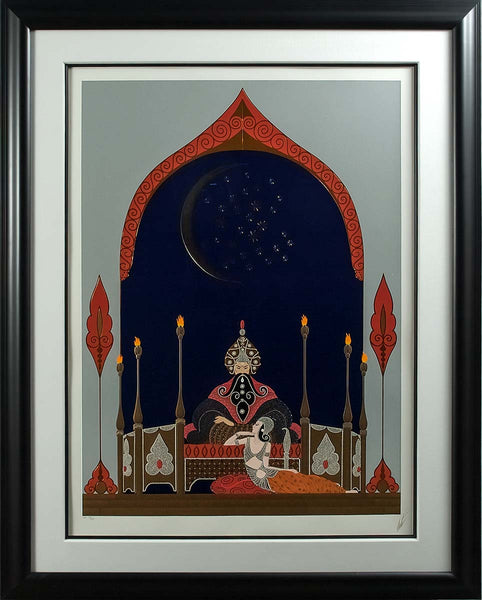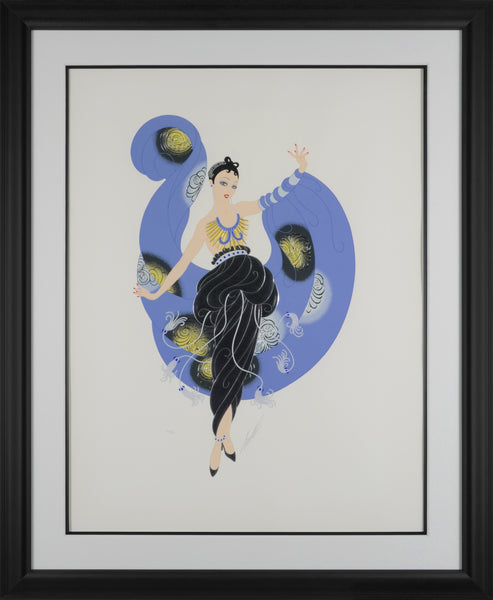Upload a photo of your space
For best results we recommend marking 10 inches on your wall with tape to get a sense of scale. Make sure to have the floor visible in the photo.




About the Work
"Melisande and Golaud" is a serigraph created by Erté in 1987. From the edition of 448, the artwork is signed 'Erté' lower right. The image size is 25.5 x 21" and the artwork is framed in a classic, gold-tone frame. The artwork ships framed and accompanied by a certificate of authenticity.
About the Artist
Erté was born Romain de Tirtoff in St. Petersburg, Russia on November 23rd, 1892 and was raised amidst Russia's social elite. At the age of five he created an evening gown for his mother and managed to persuade the adults to craft it, they were astounded by the results. In 1912, Romain left St. Petersburg for Paris at the age of nineteen with the aim of becoming an artist. After working with Paul " Le Magnifique" Poiret on several theatrical productions Romain, still under the pseudonym of Erte, began to work more independently. He hand-crafted original costume and fashion designs for many of the era’s most renowned actresses, including Joan Crawford, Lillian Gish, Marion Davies, Anna Pavlova, Norma Shearer, and others. His masterpieces for the stage included extravagant production designs at venues such as New York’s Radio City Music Hall, the Casino de Paris, and the Paris Opera. In 1915 he began his long professional relationship with Harper's Bazaar and created 240 covers for the esteemed magazine. For 6 months in 1916, Erté simultaneously worked with Vogue as well. As a result of his highly publicized success, Erté would later be called the father of the ‘Art Deco’ movement.
Please utilize the AR experience in a well-lit room.
Scan the room for surface detection.

Artwork will place in your room.
Using your fingers, align the horizontal white line
with your floor.

Double tap the artwork to scale to 100% size
and pinch to move on the screen.







